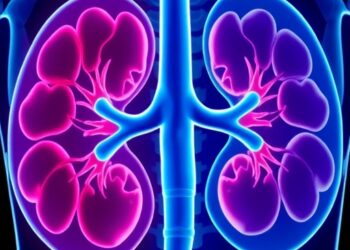BOSTON—High insulin levels contribute to worse outcomes for Black women compared to white women who have an aggressive form of breast cancer called triple-negative breast cancer, according to a study presented Sunday at ENDO 2024, the Endocrine Society’s annual meeting in Boston, Mass.
Triple-negative breast cancer accounts for about 10-15% of all breast cancers. The term triple-negative breast cancer refers to the fact that the cancer cells do not have estrogen or progesterone receptors and do not make any or too much of the protein called HER2. The cells test ‘negative’ on all 3 tests. Triple-negative breast cancer differs from other types of invasive breast cancer in that it tends to grow and spread faster, has fewer treatment options and tends to have a worse prognosis.
“Obesity and type 2 diabetes, which are more common in Black women, are associated with poor breast cancer outcomes,” according to medical student researcher Alexis Engel, B.A., of the Icahn School of Medicine at Mount Sinai in New York, N.Y. “Black women have higher rates of triple-negative breast cancer and have a greater risk of death from breast cancer in comparison to white women.”
The researchers wanted to uncover the factors contributing to the discrepancy in survival rates. They investigated whether high levels of blood insulin in Black women contribute to breast cancer growth and spread, leading to worse outcomes.
They obtained tumor samples from 45 Black and 48 white women with triple-negative breast cancer and evaluated them for cellular signs of increased sensitivity to growth from insulin. They found signs of sensitivity to insulin were more prevalent in tumors from Black women compared to white women. Insulin signaling was also correlated with obesity and high blood insulin levels.
“These results suggest that high insulin levels in Black women may be contributing to cancer growth and worse breast cancer outcomes,” Engel said.
# # #
Endocrinologists are at the core of solving the most pressing health problems of our time, from diabetes and obesity to infertility, bone health, and hormone-related cancers. The Endocrine Society is the world’s oldest and largest organization of scientists devoted to hormone research and physicians who care for people with hormone-related conditions.
The Society has more than 18,000 members, including scientists, physicians, educators, nurses and students in 122 countries. To learn more about the Society and the field of endocrinology, visit our site at www.endocrine.org. Follow us on Twitter at @TheEndoSociety and @EndoMedia.
BOSTON—High insulin levels contribute to worse outcomes for Black women compared to white women who have an aggressive form of breast cancer called triple-negative breast cancer, according to a study presented Sunday at ENDO 2024, the Endocrine Society’s annual meeting in Boston, Mass.
Triple-negative breast cancer accounts for about 10-15% of all breast cancers. The term triple-negative breast cancer refers to the fact that the cancer cells do not have estrogen or progesterone receptors and do not make any or too much of the protein called HER2. The cells test ‘negative’ on all 3 tests. Triple-negative breast cancer differs from other types of invasive breast cancer in that it tends to grow and spread faster, has fewer treatment options and tends to have a worse prognosis.
“Obesity and type 2 diabetes, which are more common in Black women, are associated with poor breast cancer outcomes,” according to medical student researcher Alexis Engel, B.A., of the Icahn School of Medicine at Mount Sinai in New York, N.Y. “Black women have higher rates of triple-negative breast cancer and have a greater risk of death from breast cancer in comparison to white women.”
The researchers wanted to uncover the factors contributing to the discrepancy in survival rates. They investigated whether high levels of blood insulin in Black women contribute to breast cancer growth and spread, leading to worse outcomes.
They obtained tumor samples from 45 Black and 48 white women with triple-negative breast cancer and evaluated them for cellular signs of increased sensitivity to growth from insulin. They found signs of sensitivity to insulin were more prevalent in tumors from Black women compared to white women. Insulin signaling was also correlated with obesity and high blood insulin levels.
“These results suggest that high insulin levels in Black women may be contributing to cancer growth and worse breast cancer outcomes,” Engel said.
# # #
Endocrinologists are at the core of solving the most pressing health problems of our time, from diabetes and obesity to infertility, bone health, and hormone-related cancers. The Endocrine Society is the world’s oldest and largest organization of scientists devoted to hormone research and physicians who care for people with hormone-related conditions.
The Society has more than 18,000 members, including scientists, physicians, educators, nurses and students in 122 countries. To learn more about the Society and the field of endocrinology, visit our site at www.endocrine.org. Follow us on Twitter at @TheEndoSociety and @EndoMedia.




